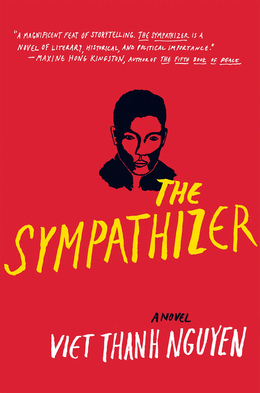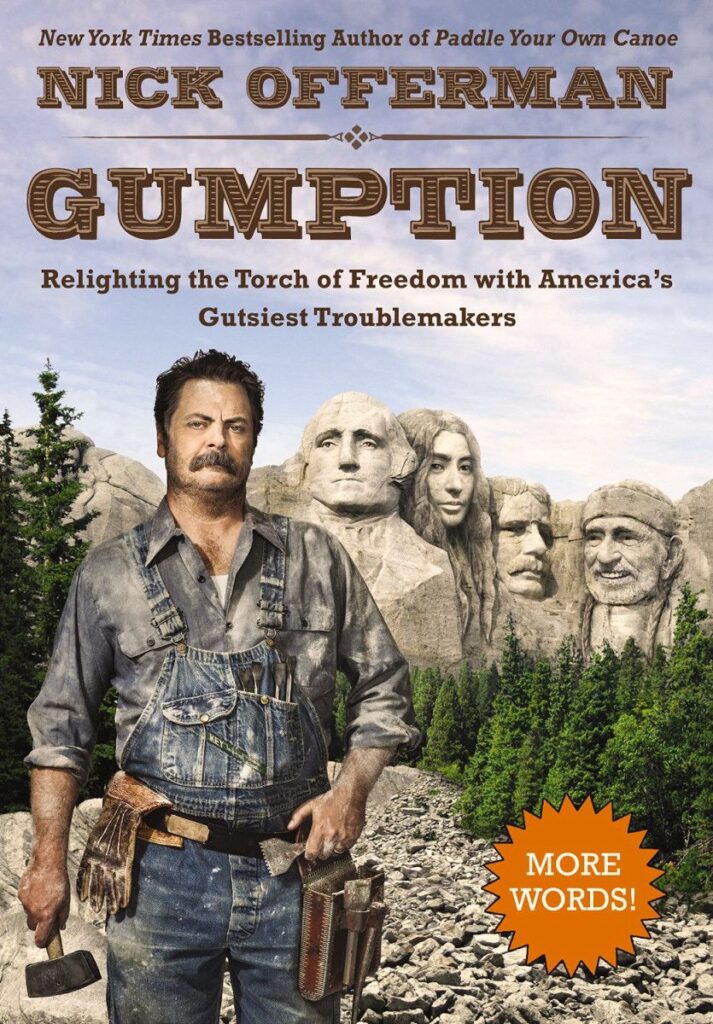
Viet Thanh Nguyen, The Sympathizer (2014)
This is the story narrated by an unnamed man who doesn’t fit in, anywhere. A bastard. His father was a French Catholic priest and his mother a Vietnamese maid. In many ways, the narrator is of two minds. Given the opportunity to study in the United States, he learns the ways of the West. But he’s still Asian, even though never fully accepted into his country. A Captain in the military, and an aide to a General, he is also a member of the Vietcong. Fittingly, the reader never learns his name. We only know him as “Captain.”
Woven into this story is the narrator’s boyhood friendship of two other boys: Bon and Man. As they studied in a Catholic school, they promised to look out for each other. This they do, despite the fact that two of them become undercover Vietcong while the third is a diehard supporter of the South Vietnamese government.
Synopsis
The story begins in April 1975. South Vietnam collapses. The General assigns the narrator the task of creating a list of those to be evacuated. Their plane will be the last to make it out of Vietnam. The refugees end up in Southern California where they gradually rebuild their lives. But the General is intent of returning to Vietnam and freeing his country from Communism. This happens but ends in disaster. However, the disaster expedition allows for a reunion of the three boys who had pledged their allegiance to one another.
There are many disturbing scenes in this book. Being undercover means the Captain has to consent to the torture of fellow Vietcong. He even is called to carry out murder of those suspected of Vietcong activity in America. While the narrator doesn’t participate, he describes the brutal rape of a suspected Vietcong woman. There are also other sex scenes in the book. We learn of how he “comes of age” with a squid (the scene is enough to make me forgo such food). Later, there are encounters with prostitutes and a Japanese American lover. The Captain, in a manner, appears to be a chauvinist.
Recommendation
Much of this book is about the cultural differences between the east and the west. In a way, the story criticizes everything. This is an honest book as the faults of all sides can be seen: communism and capitalism; the South, the Vietcong, and the Americans; eastern and western philosophy, atheism, Buddhism and Christianity. The author often brings in art (especially music) and literature to make his point. Graham Greene’s The Quiet American receives several references in the novel.
I enjoyed this book and while the likelihood that all three boys would end up in the same place at the end seems far-fetched, it’s a powerful story. I listened to the unabridged edition of the book on Audible. The actor doing the reading was exceptional. 13 hours and 53 minutes in length.
Favorite Quote:
“I like my Scotch undiluted like I like my truth. Unfortunately, undiluted truth is as affordable as 18-year-old Scotch.”

Nick Offerman, Gumption: Relighting the Torch of Freedom with America’s Gutsiest Troublemakers (2015).
Why this book
I was drawn to Offerman from his book, Paddle Your Own Canoe. However, I had a hard time purchasing a book in which the author appears on the cover in a canoe with terrible paddle-form. (Get on your knees, Offerman!). Instead of being impressed with his craftsmanship in building a canoe, I saw a lazy canoeist. After looking at his other works, I decided to listen to this book. The author reads the book. This, I always consider a benefit. The book consists of a series of essays on Americans who have, according to Offerman, shown “gumption.” The characters in the book could serve as models for us. Early in the book, I came to see Offerman as a grumpy redneck liberal.
The Good
There is much I like about Offerman’s writings. He encourages hard work that creates things for which we should be proud. He appreciates skill and those who see mistakes as just a way to learn more about how to be successful. He loves nature and simple things such as solid wood, a good book, and basic food. He finds solace in nature, loves his wife, and acknowledges the superiority of North Carolina barbecue. And he appreciates the writings of Wendell Berry and Michael Pollan and the vision of Frederick Law Olmsted. While acknowledging the failures of our nation in dealing with slavery and Native Americas, he sees something good in folks like George Washington.
The Bad
There is also much I dislike about Offerman’s writings. His use of obscene language is over the top. Obviously understanding that some don’t like his use of language, he even defends himself. This book constantly advertises for Offerman, Inc. Over and over again, the quality craft from his wood studio finds its way into the book. You can purchase such work. He continually promotes his TV show, “Parks and Recreation,” of which I had not seen. (I streamed a few episodes of the show. I wasn’t overly impressed even though the deadpan style of his character—Ron Swanson—was a highlight). And he promoted his wife and her television work along with the work of those he highlights in the work. Furthermore, Offerman seems to take great pleasure (and admits it) at meeting his heroes.
The Ugly
I almost gave up on the book because of his disdain for the church. He seems to have made his mind up about the uselessness of religion from his own Catholic upbringing and the antics of the politically active right-wring Christians in the media. The few caveats offered about the good done by the faithful, or the beauty of Scripture, far overshadows the condemnation he preaches. Yes, the church has not always upheld to the standards of Jesus, but in its truest form, he has acknowledged its own sinfulness.
The thing I disliked the most is Offerman’s oversexualized references to entertainers (of which he’s one). This trend is best seen in the last third of the book. Here, we learn that Carol Burnett has constantly rejected his invitation of a three-some with him and his wife. He also expresses his love of and marriage proposal to Jeff Tweety (despite the fact they’re both married to women). I know this was supposed to be funny, but I wasn’t amused.
Part 1: “The Freemasons”
The book is divided in three sections. The first and the shortest are the “Freemasons,” which focus on three of America’s founders (Washington, Franklin, and Madison), along with Frederick Douglas. Not only does Douglas show gumption by fleeing slavery, educating himself, and working to free other slaves. He was also, at one point in his life, a boatbuilder (something Offerman appreciates.
Part 2: “The Idealists”
The “Idealists” is the label applied to the second section. We meet Theodore Roosevelt (later in the book we learn Conah O’Brien introduced Offerman to TR). Others include Frederick Law Olmsted, Eleanor Roosevelt, Tom Laughin (the writer and star in “Billy Jack” and the first of this list that I didn’t recognize), Wendell Berry, Barney Frank, Yoko Ono, and Michael Pollan. This was my favorite section of the book.
Part 3: “Makers”
The last third of the book is titled “Makers.” Here we meet those who excel in different crafts from making tools and boats and furniture, to authors, musicians, and comedians. This list includes Thomas Lie-Nielsen, Nat Benjamin, George Nakashima, Carol Burnett, Jeff Tweedy, George Saunders, Laurie Anderson, Willie Nelson, and Conan O’Brien. The first two of the “Markers,” are the others that I did not know before reading/hearing this book. This was my least favorite section of the book.
Concluding evaluation
As I like the idea of everyone excelling and doing good work, there can be much gained from Offerman’s words. I just wish he could realize he could be funny and less offensive, while sharing the same ideas.

You got my attention with Gumption! Had to read that review. Interesting, both books so different from the other, and I think on a summer day out by the water and caring for a few chuckles, (and of course ignore the bad stuff) Offerman’s book would be a fun read.
I agree that the book will give you a few chuckles and perhaps it would be best enjoyed on the water (but only if the birds are not singing!)
The first one sounds very interesting to me, have a lovely new week!
This book is still in my mind nearly a month after finishing it… There is a lot to ponder from his words…
The Vietnam War is a story that will continue to haunt for a long time. I think telling the Vietnamese side of things – indeed the multiple Vietnamese sides – is essential.
Sorry, Offerman disappointed.
You know, I agree with many of Offerman’s ideas about good work and about how we treat others. But there were some things which he just went too far.
Jeff
You may want to read Laurie Kings ” to play the fool”, I found it extremely goog.
I haven’t heard of it, Timm. I’ll check it out, but my “to be read” pile is so tall that if it tips over, I might be crushed to death!
The Sympathizer sounds like a really interesting book and story.
It’s intense and certainly gives the reader a lot to ponder.
Gumption sounds like a book I would NOT enjoy. I’ve had to quit reading a number of books due to language, notably the very popular Wild by Cheryl Strayed.
I haven’t read Wild, but it is on my list but way down. The language in Gumption is that a comedian trying to be funny. There are some horrific stories in “The Sympathizer,” but the situation calls for them.
The first definitely goes on my TBR. Taking a pass on the second one.
There are some rough areas in this book, but then the topic calls for such. I think the author, through his fiction, has a lot to say to the West (along with the East). The narrator’s composite character lends himself to being connected to all but also excluded from all.